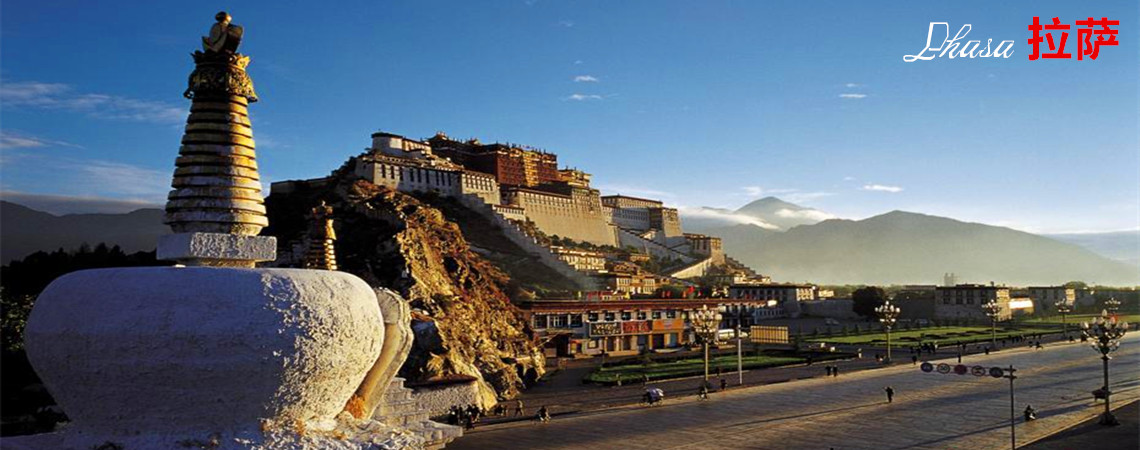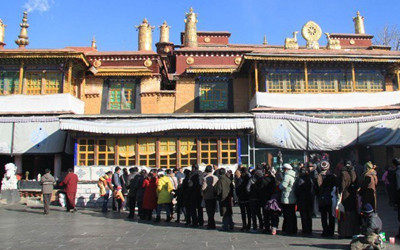Skype: neodalle-travel
Tel: +86 135 7447 2266
E-mail: sales@visitaroundchina.com

Legend of Zaki Temple
 The God of Wealth in the temple is named “Zaki” in Tibetan. It’s believed that Zaki is the incarnation of Lakshmi, the custodian of Lhasa. Legend has it that Zaki’s soul was brought back to Lhasa by an eminent monk of Sera Monastery. She was a concubine of an emperor in the Qing Dynasty (1644 - 1911) when she was alive. Unfortunately, she was poisoned to death as a result of political intrigue. Her soul was reluctant to leave the imperial palace because she wanted to revenge, making the whole palace in a panic. Emperor Qianlong learnt that there was an eminent monk who came from Sera Monastery and currently stayed on Mt. Wutai for a pilgrimage. Then he invited the monk to cease the panic in the palace. The monk talked to the soul of the concubine and knew what happened to her. Then he told the emperor about her tragedy. Emperor Qianlong punished the murderer and pled with the monk to redeem the soul of the concubine. Eventually, the concubine’s soul was redeemed. She decided to follow the monk to practiceTibetan Buddhism. The monk was so moved that he brought her back to Lhasa. However, women were not allowed to enter the Sera Monastery. Then, the monk gave a new name Zaki to the concubine and a new monastery was built for her, in which her statue was worshipped.
The God of Wealth in the temple is named “Zaki” in Tibetan. It’s believed that Zaki is the incarnation of Lakshmi, the custodian of Lhasa. Legend has it that Zaki’s soul was brought back to Lhasa by an eminent monk of Sera Monastery. She was a concubine of an emperor in the Qing Dynasty (1644 - 1911) when she was alive. Unfortunately, she was poisoned to death as a result of political intrigue. Her soul was reluctant to leave the imperial palace because she wanted to revenge, making the whole palace in a panic. Emperor Qianlong learnt that there was an eminent monk who came from Sera Monastery and currently stayed on Mt. Wutai for a pilgrimage. Then he invited the monk to cease the panic in the palace. The monk talked to the soul of the concubine and knew what happened to her. Then he told the emperor about her tragedy. Emperor Qianlong punished the murderer and pled with the monk to redeem the soul of the concubine. Eventually, the concubine’s soul was redeemed. She decided to follow the monk to practiceTibetan Buddhism. The monk was so moved that he brought her back to Lhasa. However, women were not allowed to enter the Sera Monastery. Then, the monk gave a new name Zaki to the concubine and a new monastery was built for her, in which her statue was worshipped.
Another saying goes that Zaki came together with Princess Wencheng who entered Tibet and married Songtsen Gampo in 641 during the Tang Dynasty( 618-906).
Upon entering, the worshippers burn mugwort, Chinese pine leaves or mulberry branches in the censers, then they enter the main hall, present their liquor and Hada to Zaki, and make wishes and worship other gods. Before leaving, they can leave some small changes in the charity box and add butter to the butter lamps.
On the second floor of the temple is a small Buddhist chapel. Some Tibetan locals come here to draw divination sticks to foresee future weal or woe. Lamas sitting nearby can ward off their woes with the help of Buddhist sutras.
Important Notice:
1. Bow your head and put the palms together or just one hand on your chest when meeting the monks. Never shake hands, hug or touch the monks’ heads.
2. Don’t offend the monks by talking about their taboos, such as bloody topics and meat dishes.
3. Keep quiet inside the temple and keep your hands out of the divine statues and images. If you come across a Buddhist ritual, please stand still there or leave quietly.
Travel Tips
Add: on East Zhaji Road in the northern suburbs of Lhasa City
Entrance Fee: free
Opening hours: 08:30-16:00
Transport: Take bus no. 13, 24, 28 loop line or 29 loop line and get off at Zaki Temple Station. Take bus no. 7, 12, 14, 15 or 22 and get off at Zaki Temple Crossing Station. Then walk along East Zhaji Road toward west for around 270 yards (250 meters) to get there.
 Ask Questions ?
Ask Questions ?